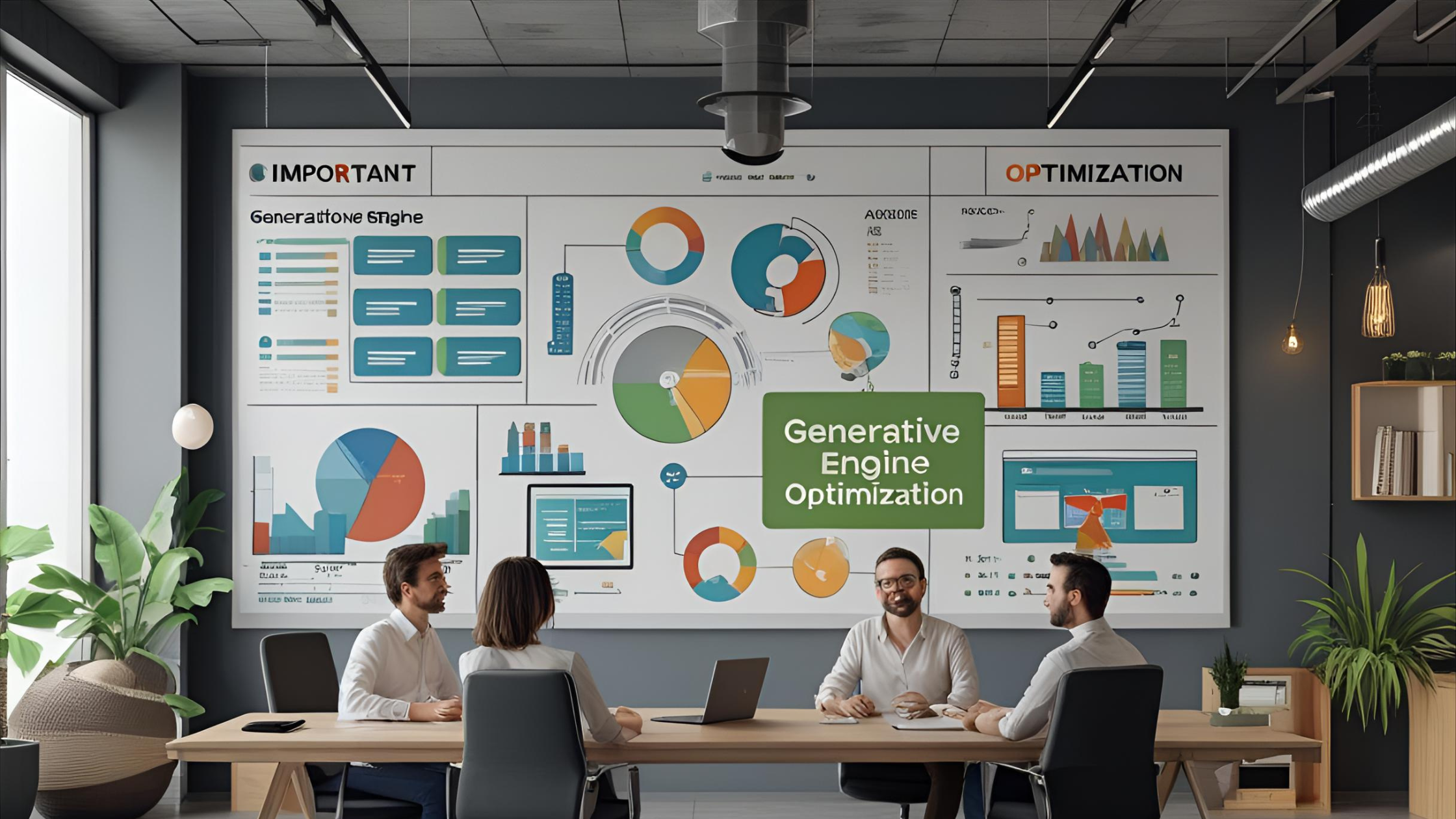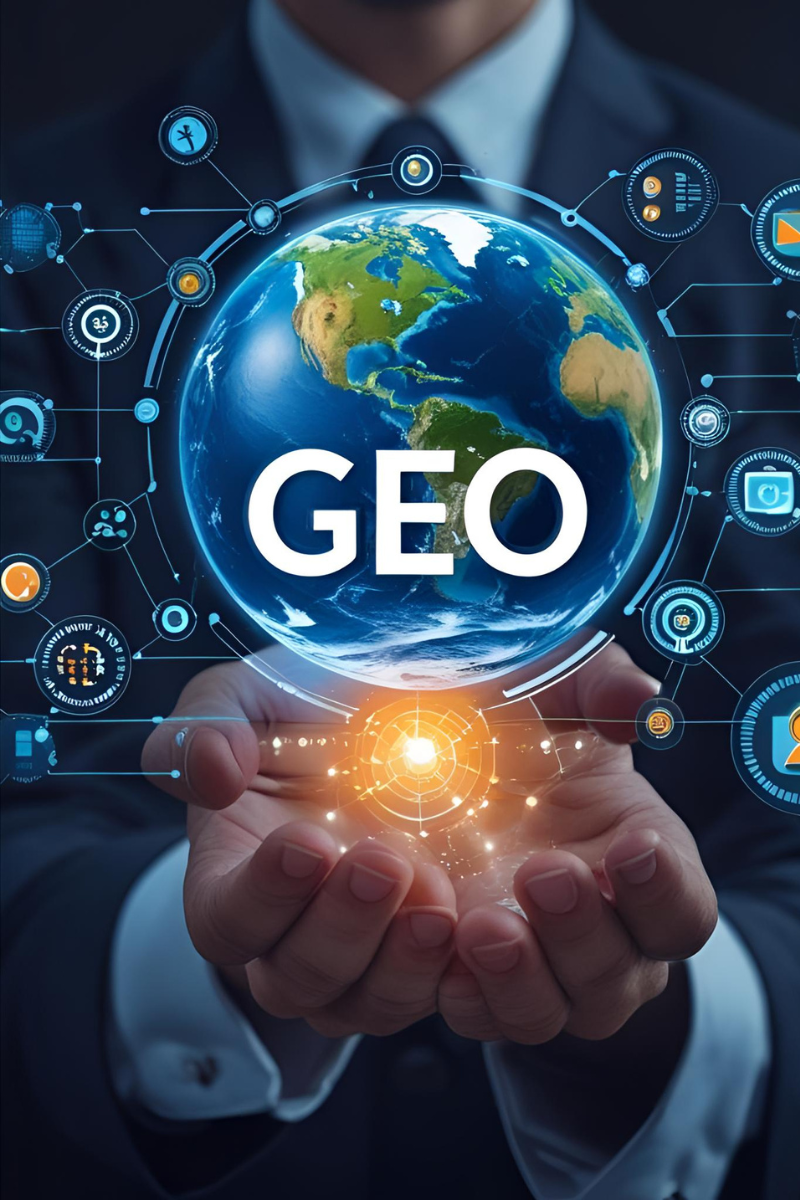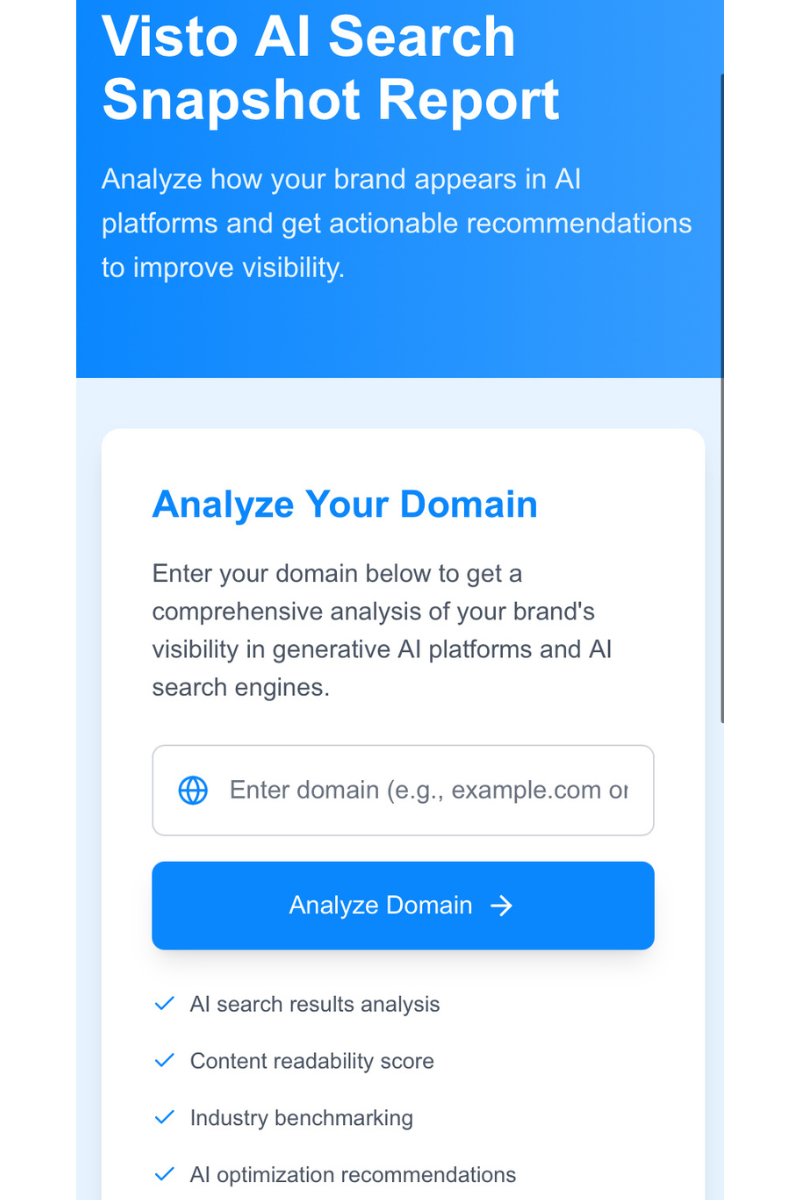Why GEO is Marketing Agencies' Biggest Client Acquisition Opportunity in 2025

TLDR SUMMARY: Marketing agencies face their biggest opportunity since mobile SEO. While 40% of searches now feature AI-generated content and clients lose 30-70% of organic traffic to AI overviews, smart agencies are positioning themselves as the solution. GEO (Generative Engine Optimization) services command $3,000+ monthly retainers, create competitive differentiation, and help agencies win enterprise clients who need immediate AI search visibility. The agencies moving first are capturing market share while competitors still focus only on traditional SEO. This comprehensive guide shows how to build GEO expertise, price services, acquire clients, and future-proof your agency business model.
Marketing agencies are asking us the same question every week: "Why is our traffic disappearing even though our rankings look fine?"
Newsflash: the answer isn't algorithm updates or competitor tactics.
It's the fundamental shift happening in how people search for information.
AI search engines like Google AI Overviews, ChatGPT, and Perplexity are changing how users find answers and businesses that don't adapt are watching years of SEO work evaporate overnight.
In our view, for marketing agencies, this represents the biggest business opportunity since mobile SEO.
While most agencies scramble to understand what's happening, smart agencies are positioning themselves as the solution.
They're offering Generative Engine Optimization (GEO) services to their clients and winning enterprise deals who need immediate help navigating AI search.
This isn't a distant threat.
With 40% of searches now featuring AI-generated content, agencies that master GEO today will capture market share from those still focused only on traditional SEO.
The land grab has already started.

The $50 Billion Marketing Agency Problem No One is Talking About
Most of your clients built their businesses on organic search traffic.
However, now that traffic is disappearing, and they're looking for answers.
People who used to click through to carefully optimized pages now just read the AI overview and move on.
The traffic that took years of SEO work to build is evaporating because AI gives users instant answers without requiring website visits.
Here's what marketing agencies need to understand about this shift:
This isn't a temporary experiment.
Google just launched "AI mode" and more keywords are getting AI overviews every month. The shift is accelerating, not slowing down.
Your clients are panicking.
CMOs have a blind spot in what's happening in this new channel, and they're being asked by CEOs to do something about it.
They need solutions now, not theories about what might happen.
Traditional SEO alone isn't enough.
While technical optimization and content creation remain important, agencies need strategies specifically designed for AI search engines that use different ranking factors and content selection criteria.
Marketing Agencies Face an Existential Choice
The marketing agency landscape is splitting into two camps: early adopters who embrace GEO and late followers who hope the problem goes away.
Visto CEO, Tom Lee said: “There are marketing agencies that are kind of in that camp who want to have everything figured out and told spoon fed to them before they would do it. But whoever has the guts to actually be ahead of the pack and be part of the people trying to figure it out.
“These are the marketing agencies who are going to actually get a majority of the market share in the next couple months to a couple of years."
The agencies winning right now aren't waiting for the playbook. That’s a dangerous game.
They're building expertise through experimentation and positioning themselves as the go-to solution for AI search challenges.
Why Smart Marketing Agencies are Racing to Add GEO Services
Marketing agencies that add GEO services aren't just expanding their offerings… they're fundamentally transforming their business models and client relationships.
One of Visto’s marketing agency customers is already charging $4000 per-month to a mid-market client for GEO when the SEO contract is $5000 per-month.
It’s a significant upsell opportunity for marketing agencies that will continue to grow.
This pricing reflects the specialized expertise required and the critical nature of AI search visibility for businesses.
The agencies moving fastest are seeing three major benefits:

Premium positioning over commodity SEO.
While traditional SEO has become increasingly commoditized, GEO allows agencies to position themselves as cutting-edge specialists.
Agencies are framing GEO results as delivering "measurable increases in brand mentions within AI responses" and talking about "first-mover advantage" .
Stronger client retention through future-proofing.
Clients working with GEO-focused agencies aren't just getting current results… they're getting protection against future search evolution.
This creates stickier relationships and reduces churn - a huge problem for agencies.
Differentiation in a crowded market.
AI search is still new, which means there's a real advantage to moving early.
Right now there are 24 companies, a growth of 6 only 3 months ago.
Agencies can claim expertise that most competitors don't have.
The Client Acquisition Goldmine
Using GEO as a primary differentiator in new business pitches is going to help marketing agencies stand out.
Because it’s a very saturated market right now.
Instead of competing on traditional SEO metrics, they're showing prospects their current AI search visibility gaps.
Visto has built tools specifically to help marketing agencies prospect, including our AI visibility snapshot that serves as a prospecting tool for agencies.
This approach transforms sales conversations from price comparisons to educational consultations.
Consider the psychological impact on prospects.
When an agency shows a business owner that their company doesn't appear in ChatGPT or Perplexity results for their core topics, the conversation shifts immediately.
The prospect realizes they have a blind spot that could cost them market share.
Smart agencies are positioning this as an opportunity rather than a threat.
They're helping clients see AI search as a chance to gain visibility in a less crowded channel while competitors focus only on traditional search.

How GEO Transforms Marketing Agency Business Models
Agencies can use GEO to fundamentally upgrade their client relationships and pricing models.
Service Expansion Beyond Traditional SEO
GEO agencies think in systems.
They help brands show up across the web in all the places that feed into LLM knowledge - interviews, product pages, FAQ hubs, and even forum quotes.
It creates multiple touchpoints with clients.
Instead of managing just website optimization, your agency can now handle:
- AI visibility audits across multiple platforms
- Cross-platform content syndication strategies
- Review management optimization for AI citation
- Schema markup and structured data implementation
- 22 specialized GEO techniques including AI crawler optimization and strategic keyword placement
Real Agency Success Stories
The results speak for themselves.
We’ve read reports: "In the first two quarters, we have seen an 88% year-over-year increase in organic traffic and a 42% YoY increase in unique pageviews from organic traffic" for a client after implementing GEO strategies.
MentorCruise brought in over 11,500 visits from tools like Perplexity in just a few months, while other clients like SignWell, Growform, and Instatus appear consistently in AI search results.
These aren't vanity metrics.
The agencies tracking GEO success are measuring business impact: qualified leads, conversion rates, and revenue attribution from AI search channels.
The Marketing Agency GEO Service Stack
Every generative engine plays by different rules.
Perplexity pulls from different sources than Bing Chat. Gemini handles citations differently than Claude.
You need to adapt and be strategic in how you do it.
Core GEO Services
- AI Visibility Audits and Gap Analysis. Agencies begin with an audit of how a brand currently appears in AI searches and then create a roadmap to improve it. This diagnostic approach immediately demonstrates value and creates urgency for prospects.
- Multi-Platform Optimization Strategy. Leading agencies focus on visibility across multiple AI platforms including Google's SGE, Bing Chat, and even emerging voice and social AI search tools. This comprehensive approach justifies higher retainer fees.
- Content Architecture for AI Citation. GEO strategies may vary depending on the domain - authoritative language works best for historical content, citation optimization benefits factual queries, and statistics enhance law and government topics.
- Technical Implementation and Monitoring. Agencies set up Google Analytics to track traffic from LLMs and add an llms.txt file to guide AI engines on what to crawl. This technical depth separates professional services from DIY approaches.
Client Acquisition Strategies for GEO-Focused Agencies
GEO presents an unbelievable opportunity for marketing agencies to greatly enhance their client acquisition.

Prospecting with Visibility Snapshots
For example, our visibility snapshot is a tool that is actually built for marketing agencies to prospect. This approach will transform your cold outreach from generic pitches to valuable assessments.
Instead of claiming they can improve SEO rankings, agencies show prospects exactly where they're missing in AI search results.
In a matter of seconds.
This concrete demonstration creates immediate urgency and positions the agency as the solution to a problem the prospect might not have known existed.
Educational Selling Approach
Marketing agencies need to get educated on what GEO actually is and how to actually do it.
But even before all of it, they need to know how to sell this to their clients - they have to be able to talk very intelligently about it.
The most effective agencies approach sales as education rather than persuasion. They help prospects understand:
- How AI search engines select sources for responses
- Why traditional SEO metrics don't guarantee AI visibility
- The competitive advantage of early adoption
- Specific opportunities in their industry or niche
Training Teams on GEO Fundamentals
The knowledge gap in GEO creates both opportunity and risk for agencies.
Teams that understand the fundamentals can command premium pricing, while those that treat it as repackaged SEO will struggle to deliver results.
Be aware of the differences.
Core competencies successful agencies develop:
- Understanding how different AI engines (ChatGPT, Perplexity, Gemini) select and cite sources
- Content structuring for AI comprehension and citation
- Schema markup optimization for AI crawlers
- Cross-platform content syndication strategies
- AI visibility measurement and reporting
-
Avoiding common misconceptions. If an agency can't explain how ChatGPT or Google's AI Overviews choose sources, that's a red flag for a client. You want a team that knows how language models crawl, filter, and cite content - not just someone repackaging old SEO tactics with a new label.
Frequently Asked Questions
How much should marketing agencies charge for GEO services?
At WebFX, GEO services start at $3,000 per month, representing a significant premium over traditional SEO. Most successful agencies price GEO services 40-60% higher than comparable SEO packages due to the specialized expertise required and the strategic importance to clients.
Value-based pricing works best. Focus on the business impact of AI search visibility rather than hourly rates or deliverable-based pricing. One of Visto's marketing agenct clients is upselling GEO with their SEO package using our tool for $4000 per month.
What's the difference between GEO and traditional SEO for client results?
SEO primarily targets traditional search engines like Google, whereas GEO is designed for the dynamic world of generative AI and answer engines Generative Engine Optimization (GEO) vs Search Engine Optimization (SEO). The key difference is citation versus ranking.
Traditional SEO focuses on ranking positions in search results. GEO focuses on getting cited and mentioned in AI-generated responses, even when users never click through to websites.
How do agencies measure GEO success for clients?
GEO proposes a set of impression metrics that measure the visibility of citations and their relevance to the user query Generative Engine Optimization (GEO) vs Search Engine Optimization (SEO). Leading agencies track:
- Brand mentions in AI search responses
- Traffic from AI platforms (ChatGPT, Perplexity, etc.)
- Citation frequency across different AI engines
- Qualified leads generated from AI search channels
Which industries benefit most from GEO services?
In eCommerce, the user intent is typically transactional, so agencies focus on detailed product descriptions with long-tail keywords that AI can parse and select GEO Optimization: Advanced Strategies for AI Search Results. However, GEO works across industries with different approaches:
- B2B SaaS: Focus on thought leadership content and technical documentation
- Professional services: Emphasize expertise demonstration and FAQ optimization
- Healthcare/Legal: Prioritize authoritative content and compliance considerations
- E-commerce: Optimize product descriptions and transactional content
How long does it take to see GEO results for clients?
One legal client saw consistent mentions in AI tools like ChatGPT and Bing Chat following GEO-related on-site updates. Results vary, but agencies typically see initial improvements in 30-90 days.
Unlike traditional SEO that can take 6-12 months for significant results, GEO often shows faster initial improvements because the AI search ecosystem is less saturated.
What tools do agencies need to offer GEO services effectively?
HubSpot's AI Search Grader is an effective solution for understanding your content's performance in AI search results Generative Engine Optimization (GEO) vs Search Engine Optimization (SEO). Essential tools include:
- AI visibility tracking platforms
- Schema markup testing tools
- Content optimization software for AI readability
- Cross-platform analytics for AI traffic sources
- Competitive analysis tools for AI search presence
How do agencies handle client education about GEO?
Marketing agencies need to get educated on what GEO actually is and how to actually do it. But even before all of it, they need to know how to sell this to their clients AI Search Evolution: GEO vs Traditional SEO - TheeDigital.
Successful agencies use educational selling approaches:
- Demonstrate current AI search gaps with visibility assessments
- Show competitive analysis of AI search presence
- Provide case studies from similar industries
- Explain the risk of inaction versus early adoption benefits
Can small marketing agencies compete with larger agencies in GEO?
Small mom-and-pop shops can gain market share from big, massive companies by starting early and taking all the right steps AI Search Evolution: GEO vs Traditional SEO - TheeDigital. Size isn't the determining factor in GEO success.
Small agencies often have advantages:
- Faster implementation and iteration
- More personalized client relationships
- Ability to specialize in specific niches
- Lower overhead allowing competitive pricing
What are the biggest mistakes agencies make when starting with GEO?
If an agency can't explain how ChatGPT or Google's AI Overviews choose sources, that's a red flag.
Common mistakes include:
- Treating GEO as repackaged traditional SEO
- Focusing only on Google AI Overviews instead of multiple AI platforms
- Promising unrealistic timelines or guarantees
- Not investing in proper team training and tools
- Underpricing services due to lack of confidence
Is GEO going to replace traditional SEO for agencies?
It's unlikely that GEO will replace SEO entirely.
However, AI-driven search engines are becoming more prevalent, and traditional search engines are going to play a much less significant role.
Agencies need to offer integrated approaches that combine traditional SEO with GEO strategies, positioning themselves as comprehensive search marketing partners rather than specialists in just one area.
How do agencies get started offering GEO services?
Start by implementing GEO for your own agency website.
We’ve found that the forward-thinking agencies apply their GEO system to themselves first, tracking their presence in Perplexity, Gemini, and Bing Chat every week.
Because it provides:
- Real experience with GEO implementation
- Case studies for client presentations
- Confidence in your methodology
- Proof of concept for prospects
What client types should agencies target first for GEO services?
From our conversations with marketing agencies, the early adopters care a lot.
And they all want to buy the newest technology, be trailblazers an ensure they don’t get left behind.
Target clients who:
- Have established SEO programs already
- Face competitive pressure in their industry
- Understand the importance of digital marketing
- Have budgets for premium services
- Show interest in innovation and early adoption
Focus on businesses that already invest in SEO and content marketing, as they'll understand the value proposition more quickly than companies new to search marketing.
Not charging enough for services because of a lack of confidenceIs





.avif)

